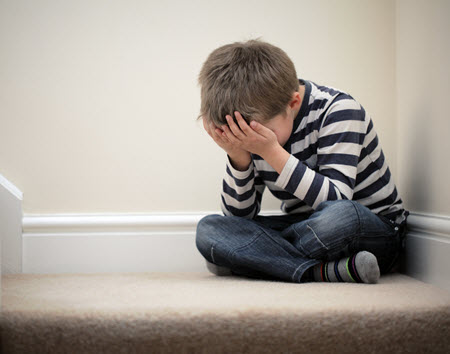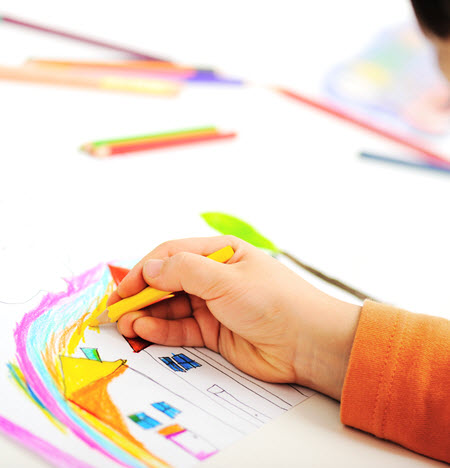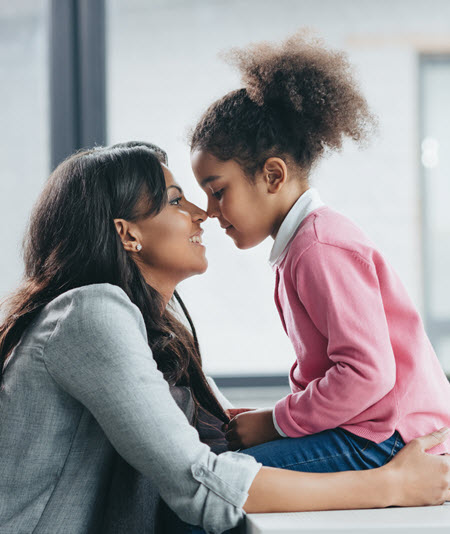 You know your child is struggling…
You know your child is struggling…
They seem moody, anxious, depressed, or angry.
From the moment they wake up, it’s a struggle. You ask them to get up and get ready for school and the battle begins.
You don’t know what to do. The more you try to help, the more upset they become. You’re tired of the tantrums. It seems like they’re happening with no rhyme or reason. It’s causing tension in the home.
Just trying to get them to spend time with the family can be so difficult.
Good days are rare.
Everyday there’s a fight…
You must brace yourself for the phone calls from school. They’re not doing their homework. They were in another fight. They wandered the halls today and refused to go in the classroom. The list of complaints from the school goes on and on.
This is not what you dreamed of when you gave birth. You don’t understand. Your other children don’t struggle like this. Your child has an IEP, they’ve had classroom aides, seen a psychiatrist, been to doctors, and nothing seems to change.
You’re at your wits’ end… exhausted and tired.
You know your child has changed, and you don’t know why. You hear your child say things like, “No matter what I do, it will always be my fault” or “Nobody likes me.”
They’re struggling with low self-esteem. You know they’re smart and intelligent; you sometimes get a glimpse of their sweet side, but they don’t believe it. They think they’re dumb, not good enough, that all they are is trouble. Sometimes they won’t come out of their room.
At other times, they seem extra clingy, demanding of your time and attention, getting angry when they don’t get it. “Why is this happening?” It breaks your heart. They struggle to maintain friendships and spend a lot of time alone.
Your little bundle of joy used to be happy; now you can’t reach them. They feel so distant. You’ve tried talking to your child, but they respond with, “Leave me alone!” and go storming off again.
They’re in pain – you know they are. It doesn’t seem possible that someone so young can hurt so bad, but they can. You worry about their future. What will it look like if things don’t change?
 When nothing you’ve tried helps…
When nothing you’ve tried helps…
You’ve tried time outs, taking the electronics, and making them spend more time with you… but nothing seems to be working.
You have screamed and yelled. When that didn’t work, you tried talking to them in a calm loving tone. It feels like you’re in a constant tug of war with your child – the two of you, vacillating between cajoling and yelling.
You’ve placed them on restriction; you’ve tried reward jars, chore charts, and offering them allowance. You sought advice from other parents. but it’s not working for your child – they’re still having major meltdowns.
You feel like a failure as a parent. You feel helpless and alone.
Why don’t other parents have this problem. Is it me? Am I doing something wrong?
You’re not a bad parent. You’re doing the best you can.
But you probably can’t help but ask yourself…
What am I doing wrong??
There are many factors that can be contributing to your child’s acting-out behaviors. Anything from a childhood trauma, the loss of a loved one, being bullied at school, or possible abuse.
Another factor that we’ll explore together is your child’s birth history. Was there a disruption in attachment due to adoption, early hospitalizations, or post-partum depression in the mother? Any one of these situations can lead to behavior problems that look like a messy combination of emotional outbursts, ADD, oppositional behavior, depression, anxiety, or bipolar disorder, which can be very hard to manage no matter how loving you are.
 Let’s talk about what children’s therapy actually looks like…
Let’s talk about what children’s therapy actually looks like…
I use a multi-modal approach when working with children. I don’t have a one size fits all treatment plan.
The most important part to the treatment of children is to give them some choice in the room. So, some days, your child might want to talk; other days, we will talk while playing a game; and, at other times, we will break out the art supplies and let them explore their feelings through art. They get to decide what happens.
We will sometimes use worksheets that help them explore their feelings and teach them what to do when these feelings come up for them. They will learn how to ask for what they need in a way that’s not combative or demanding.
Together, we will help them understand that they are wonderful and unique.
I will also use EMDR (eye movement desensitization and reprocessing) when necessary to help your child process any traumatic events or situations. EMDR is one of the best treatments for treating trauma.
It’s a power tool that helps the memory feel distant and far away, so it no longer has the same power. Your child will be given tappers that vibrate in their hands, going back and forth. As they hold the tappers, they will either close their eyes and recall the memory or they will talk through the memory out loud. It will feel like their brain is telling a story, going from one memory to another.
The brain is amazing. It stores memories that we thought we forgot, but sometimes those memories are so deeply buried we don’t know they’re in there.
What does that look like for your child? Your child experienced a trauma; as a result, they are stuck in the trauma or the negative belief about the trauma. They can’t remember what happened after. They don’t remember surviving, getting away, feeling safe. They just know they were in danger. As we process their memory, these memories start to come back. They can see the whole story, not just the traumatic parts. When this happens, their brain can reprocess the memory so that it no longer causes triggers that lead to anxiety, depression, and angry outbursts.
Here are some of the things we’ll accomplish together…
I will help your child understand his or her emotions and behaviors. We will explore the reasons they get so upset. They will begin to understand what is happening inside of them that causes an explosion of anger, hurt, sadness, and fear, that results in major meltdowns and tantrums.
I’ll teach them tools to manage negative mood states and help them discover healthy communication, so they can more effectively get their needs met (in lieu of angry outbursts). These tools include developing their emotional language (hurt, sad, frustrated, afraid), so they can communicate them instead of resorting to anger.
They will learn deep breathing techniques that can reduce anxiety and anger. Together, we will explore their triggers, so they understand what is causing them to be upset and helping them learn to understand the negative thoughts that are impacting their feelings.
 As the parent, I will help you discover parenting skills…
As the parent, I will help you discover parenting skills…
… that are attachment-oriented to help you find connection with your child even when they are having a difficult time.
Attachment-oriented parenting stops the tug of war and the disconnection that results from typical arguing. You’ll learn skills like asking for a compromise, the power of offering two choices, the use of “time-ins” and not “time outs,” the power of gentle touch when your child is upset, the use of weighted blankets for mood stabilization when they are feeling really upset and out of control, and other tools that allow you and your child to communicate better and end the constant cycle of arguing.
By implementing these techniques, you and your child will be on the same team. Your child will learn how to express what they need when they are upset, and you will understand how to help them. That’s the power of attachment-oriented therapy. It’s not about rewards and consequences; it’s about connection and communication. It’s powerful and it works.
You are the parent, so you’ll be key part to their treatment and healing.
In the beginning of treatment, there will be times where I will be meeting with the child and the parents separately, but my ultimate goal is to bring the family together for some family work. It’s important that your child feel safe in the room. That they have a place where they can express their feelings without me “telling on them” after the session.
Eventually, I will meet with you before or after the session for just a few minutes to check-in with my client’s progress at home. At other times, I will meet with you alone to discuss new parenting skills that will help you and your child get out of the tug of war that you’ve been experiencing for so long.
You will be an important key to your child’s healing. Because of this, my goal is to bring the family together for family counseling as soon as possible. During family counseling, your child will be able to practice the communication skills they’ve learned in the safety of the therapeutic environment. They may want to play a game, talk, or draw together.
They will be encouraged to express their fears, hurts, and sadness with you so that you can understand what your child’s experiences have been. I will also help your child learn to listen to you, hear your heart, your love, and your strong desire to be there for them and to help them, so you can develop a stronger bond and better communication.
 Yes, there is absolutely hope for change!
Yes, there is absolutely hope for change!
It’s never too late. No child is too far gone.
Your child can heal and become a more well-adjusted, happy person. Call today for your free 30-minute phone consultation and start your child on the path toward healing.
Your family can heal, and you can enjoy being a parent again.
You’re just one phone call away from starting your journey toward a healthy and happy family. Call today: (619) 352-0486.

